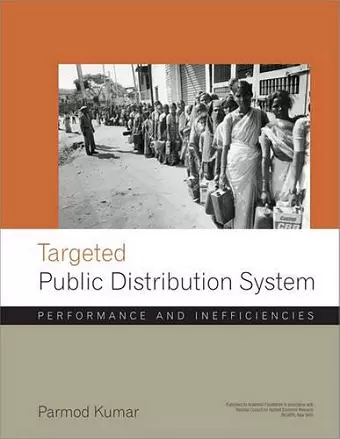Targetted Public Distribution System
Performance and Inefficiencies (A Study by NCAER)
Format:Paperback
Publisher:Academic Foundation
Published:30th Jul '11
Currently unavailable, and unfortunately no date known when it will be back

As outlined by Suman Bery in his Foreword to this volume: in India, “the Public Distribution System (PDS) continues to be a major instru-ment for ensuring food security for the poor. The basic objective of shifting from a universal PDS to targeted PDS (TPDS) was to benefit the poor at acceptable budgetary cost. The success of the TPDS in meeting its stated objectives depends largely on the ability of the State Governments to identify the genuinely poor families, restricting the number of poor families to the number estimated by the Planning Commission and in putting in place an effective and efficient delivery system. In a number of recent studies, it has been highlighted that there are large-scale errors in the identification of targeted families, low off-take of food grains by the poor and there are weaknesses in the delivery system.
In view of these concerns, the National Council of Applied Economic Research (NCAER) was entrusted with the study to examine the extent to which food grains disbursed under the TPDS are actually reaching the Antyodaya and below poverty population in the country and to find out the incidence as well as the mode of irregularities in the system.
The study is based on a large primary survey conducted in 12 states in two phases. The study advocates that if the functioning of the TPDS system is to be improved, the first step would be the correct identification of beneficiaries. Proper monitoring of the system and effective punish-ment against the offender would essentially be needed. The findings and policy suggestions in this book will lead to a better-informed debate and will help those concerned to come up with new and innovative approaches for making the TPDS system more effective and pro-poor. The book will be of interest to the planners, policy makers, researchers, students and the academia.
ISBN: 9788171887989
Dimensions: unknown
Weight: 1050g
392 pages